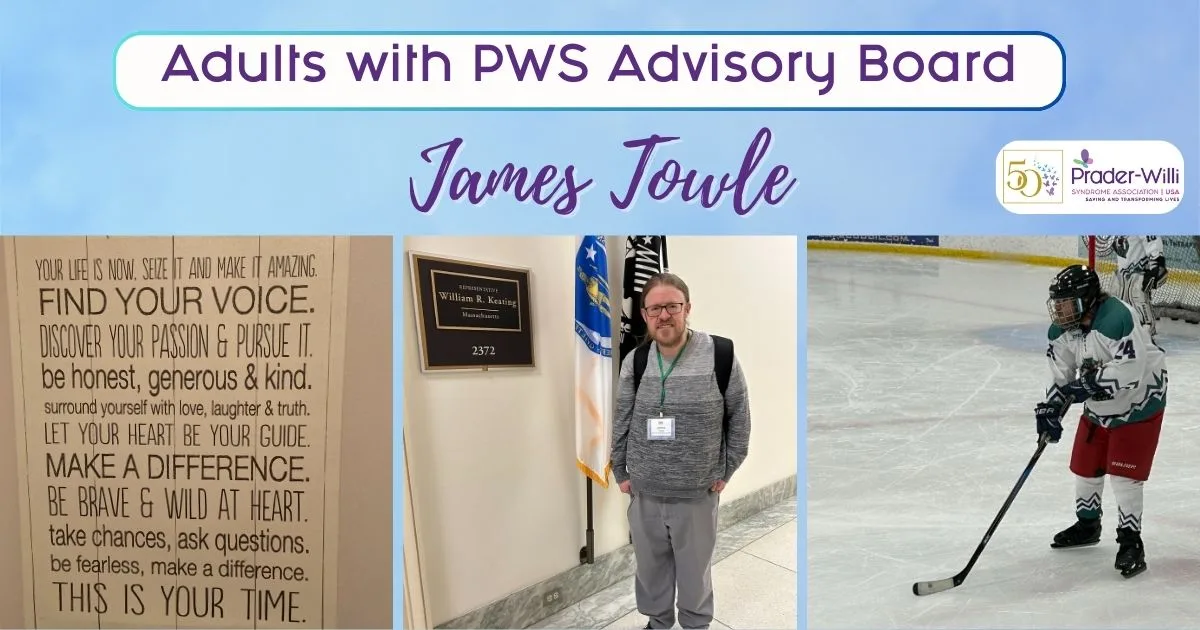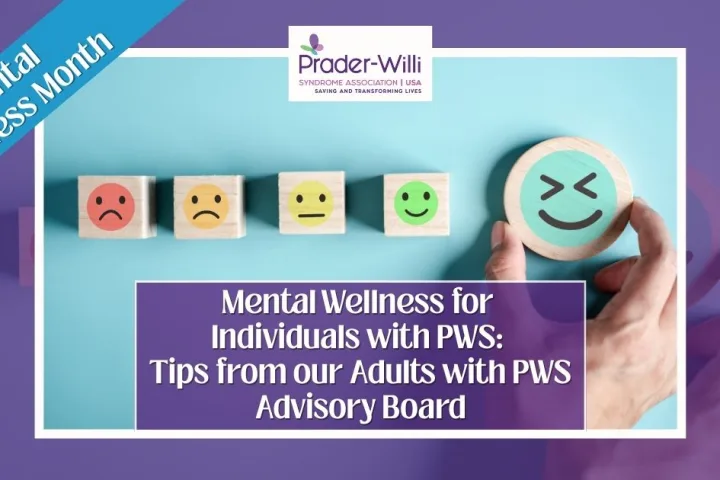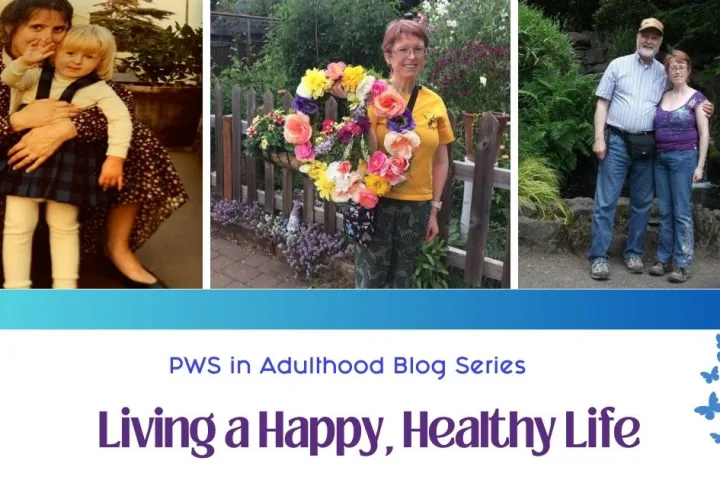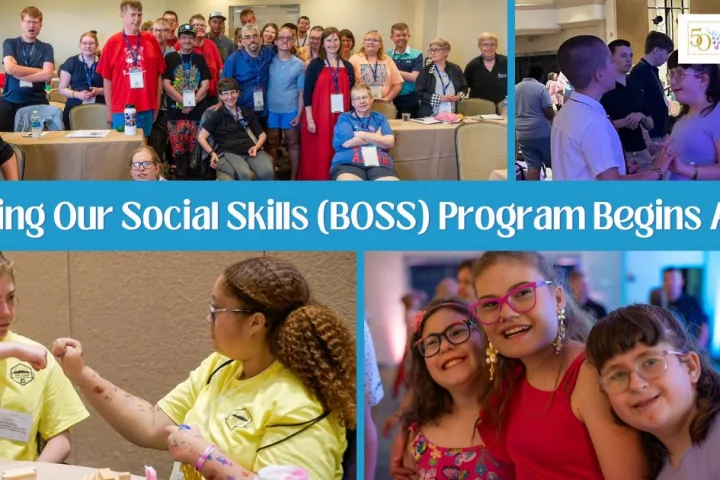James Towle is 39 years old and lives with Prader-Willi syndrome. He resides in Massachusetts and is “proud and honored to have been given the opportunity to serve on the board this past January 2025.” In an effort to learn more about our adults with PWS, and to shine a light on their lives and experiences, we asked our Advisory Board members some questions. Below are James’s responses.
What is something you are really good at?
I’m really good at advocating for myself and others within the Special Needs Community. I’m also good at being a mentor and role model for the younger generation; especially to my three nieces and my nephew.
What are some activities you like to do?
I enjoy reading, writing, model building, playing sports (especially hockey), volunteering in the community, studying, learning new things, teaching others, and spending time with friends and family.
What makes you happy? What makes you laugh or smile?
Exploring, living, loving, inspiring others, and simply enjoying life are some things that make me happy. And something that really makes me laugh and smile is when I see the looks of excitement on the faces of those I inspire.
What is something that makes you interesting?
I love exploring and experimenting with new things. And I especially admire how dedicated and motivated during the process. Such as learning to ice skate, after trying and failing to during childhood due to low muscle tone; and then ultimately fulfilling a dream of playing ice hockey.
Why should people learn about PWS?
People should learn about PWS so they gain knowledge of the condition but also gain an understanding of what life is like for us on a daily basis.
What is one thing people should know about PWS?
It’s a complex neurological disorder with a wide spectrum of symptoms and conditions which affect us all differently.
Is there something about PWS that people don’t understand?
That even though living with and dealing with the complexity of PWS makes us appear and act different…it doesn’t define who we are. We’re all human, we’re all special, we’re all unique and we’re all individually trying to adapt to our differences, reach our fullest potential as possible and make the most out of life.
In what way does PWS challenge you?
How doesn’t it challenge me…it always has and always will…but I’ve never let that fact stop me. PWS, as is any other syndrome, disorder and disability; it’s trial and error or guess and check. “If something doesn’t work or help at first you find something that could help and you test it and if it still doesn’t work you experiment with it until it does work”.
How does PWS make you special?
PWS is simply what makes me an individual. I’m a unique human being with differences and challenges that often get in the way of living my life…but despite all the struggles and hardships…I push myself to do the best I can!
Is there something you would say to parents of newly diagnosed individuals with PWS?
Never underestimate your child’s potential. Even though the complexities of PWS can be daunting, the realms of what’s possible always outweighs the impossibilities.
Share this!





 Perry A. Zirkel has written more than 1,500 publications on various aspects of school law, with an emphasis on legal issues in special education. He writes a regular column for NAESP’s Principal magazine and NASP’s Communiqué newsletter, and he did so previously for Phi Delta Kappan and Teaching Exceptional Children.
Perry A. Zirkel has written more than 1,500 publications on various aspects of school law, with an emphasis on legal issues in special education. He writes a regular column for NAESP’s Principal magazine and NASP’s Communiqué newsletter, and he did so previously for Phi Delta Kappan and Teaching Exceptional Children. Jennifer Bolander has been serving as a Special Education Specialist for PWSA (USA) since October of 2015. She is a graduate of John Carroll University and lives in Ohio with her husband Brad and daughters Kate (17), and Sophia (13) who was born with PWS.
Jennifer Bolander has been serving as a Special Education Specialist for PWSA (USA) since October of 2015. She is a graduate of John Carroll University and lives in Ohio with her husband Brad and daughters Kate (17), and Sophia (13) who was born with PWS. Dr. Amy McTighe is the PWS Program Manager and Inpatient Teacher at the Center for Prader-Willi Syndrome at the Children’s Institute of Pittsburgh. She graduated from Duquesne University receiving her Bachelor’s and Master’s degree in Education with a focus on elementary education, special education, and language arts.
Dr. Amy McTighe is the PWS Program Manager and Inpatient Teacher at the Center for Prader-Willi Syndrome at the Children’s Institute of Pittsburgh. She graduated from Duquesne University receiving her Bachelor’s and Master’s degree in Education with a focus on elementary education, special education, and language arts. Evan has worked with the Prader-Willi Syndrome Association (USA) since 2007 primarily as a Crisis Intervention and Family Support Counselor. Evans works with parents and schools to foster strong collaborative relationships and appropriate educational environments for students with PWS.
Evan has worked with the Prader-Willi Syndrome Association (USA) since 2007 primarily as a Crisis Intervention and Family Support Counselor. Evans works with parents and schools to foster strong collaborative relationships and appropriate educational environments for students with PWS. Staci Zimmerman works for Prader-Willi Syndrome Association of Colorado as an Individualized Education Program (IEP) consultant. Staci collaborates with the PWS multi-disciplinary clinic at the Children’s Hospital in Denver supporting families and school districts around the United States with their child’s Individual Educational Plan.
Staci Zimmerman works for Prader-Willi Syndrome Association of Colorado as an Individualized Education Program (IEP) consultant. Staci collaborates with the PWS multi-disciplinary clinic at the Children’s Hospital in Denver supporting families and school districts around the United States with their child’s Individual Educational Plan. Founded in 2001, SDLC is a non-profit legal services organization dedicated to protecting and advancing the legal rights of people with disabilities throughout the South. It partners with the Southern Poverty Law Center, Protection and Advocacy (P&A) programs, Legal Services Corporations (LSC) and disability organizations on major, systemic disability rights issues involving the Individuals with Disabilities Education Act (IDEA), Americans with Disabilities Act (ADA), and the federal Medicaid Act. Recently in November 2014, Jim retired.
Founded in 2001, SDLC is a non-profit legal services organization dedicated to protecting and advancing the legal rights of people with disabilities throughout the South. It partners with the Southern Poverty Law Center, Protection and Advocacy (P&A) programs, Legal Services Corporations (LSC) and disability organizations on major, systemic disability rights issues involving the Individuals with Disabilities Education Act (IDEA), Americans with Disabilities Act (ADA), and the federal Medicaid Act. Recently in November 2014, Jim retired.